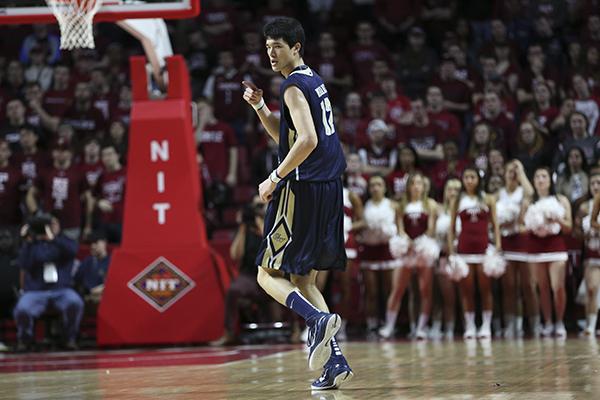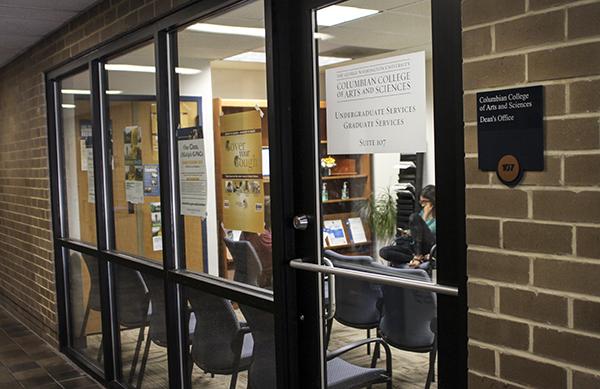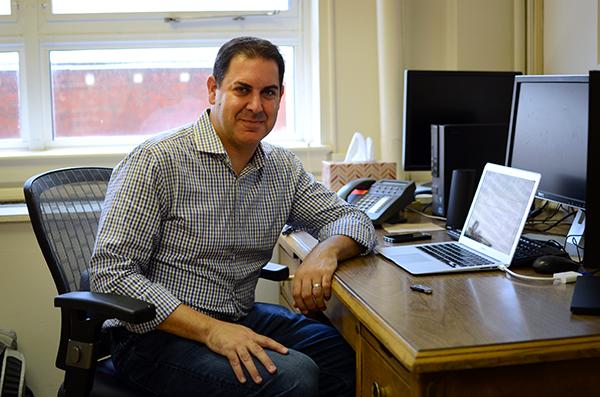Before you find out the attendance requirement for your 8 a.m. class, settle into your first apartment or split tater tots with a friend at Tonic, get in the know about campus goings-on.
Over the summer, GW became one of the largest test-optional universities in the country, the University Police Department hired a new chief and ESPN2 announced it would broadcast the men’s Nov. 16 basketball game.
Welcome back, GW.
GW ditches the SAT and ACT

High schoolers with their hearts set on GW have one fewer hoop to jump through when they apply. Last month, the University became one of the highest-ranking institutions to nix required SAT or ACT scores for applicants.
GW officials said being test-score optional would encourage low-income, minority and first-generation students to apply. But some experts questioned the impact of the policy saying it could hurt GW’s financial diversity and that many students will likely still submit their scores.
University-wide budget cuts
Officials made 5 percent cuts across divisions last year after two years of missed budget projections.
Those cuts hit some areas harder than others. The University laid off 46 staff members in April and delayed portions of its strategic plan. The music, theater and dance departments had to cut beloved programs, like a decades-old jazz jam.
The University also admitted 45 percent of applicants to this fall’s class, the highest percentage in a decade, in an effort to boost enrollment and revenue. GW relies on tuition for roughly 75 percent of its revenue, meaning a class that’s larger by about 200 students could help ease its woes.
The men’s and women’s basketball teams
The last few years have been record setters in terms of television exposure for GW sports, and so far, all signs point to this year being another one. The men’s basketball team is opening up men’s college hoops coverage on ESPN2 in a home game against the University of Virginia.

The women’s team had a phenomenal season last year, spending much of it ranked in the Top 25, but lost in the first game they played in the NCAA tournament. There’s no way to classify a year that successful as a disappointment, but the team wanted more and its goal this year is to get it. Some expect Jonquel Jones, a senior among the top women’s players in the country, to be drafted by the WNBA.
The “core four” of the men’s team needs a new nickname after shooting guard Kethan Savage transferred to Butler after last season. Savage had been a mainstay of the Colonials offense since the 2012–2013 season. After sitting out a year due to NCAA rules, Wake Forest transfer Tyler Cavanaugh will play forward. Another big body up front with Kevin Larsen, especially when Yuta Watanabe plays outside, could do wonders for the team.
The $1 billion campaign
Whether it’s through the signs you’ll see on buildings or fundraising blitzes to target young alumni and students, you can expect to hear more about the campaign when you get back to school this fall.
The massive fundraising push, GW’s largest ever, was publicly launched last summer. So far, the campaign has brought in a total of $770 million which will help support areas like financial aid, construction and academics. Each school has a specific fundraising goal as part of the campaign, and deans are expected to court donors and help reach that total.
Despite a history of lackluster fundraising, GW has turned the corner with the campaign, which is scheduled to last three more years. This past fiscal year was the University’s most successful fundraising year ever, and officials brought in $230 million.
But the campaign isn’t without its bumps. The former head of GW’s fundraising operation suddenly stepped down in October. Three top officials in the office have also left over the last year.
A new dean for the Elliott School
Well, he’s not here quite yet. Reuben E. Brigety will lead the Elliott School of International Affairs starting in October and brings with him nearly two decades of experience as an active duty naval officer, a researcher with the Arms Division of Human Rights Watch and most recently as the U.S. representative to the African Union.
Brigety brings a combination of scholarly and field experience to the role. He is also the permanent U.S. representative to the United Nations Economic Commission for Africa. He previously served as a deputy assistant secretary of state in the Bureau of African Affairs and in the Bureau of Population, Refugees and Migration.
He replaces former dean Michael Brown, who led the school for 10 years and turned it into what’s often called the crown jewel of GW’s schools. Brown is on sabbatical for the academic year.
A new leader for the University Police Department
RaShall Brackney, a 15-year commander in the Pittsburgh Bureau of Police, took over leadership of the University Police Department from interim UPD chief Frank Demes in June.
Brackney was head of the major crimes division Pittsburgh Bureau of Police, where she worked with university police forces. Pittsburgh is home to several colleges, including Carnegie Mellon University and the University of Pittsburgh.
She oversees more than 100 officers on the Foggy Bottom, Mount Vernon and Virginia Science and Technology campuses.
Sexual assault prevention
Campus sexual assault has been at the forefront of attention nationwide for more than a year. Prevention is a major focus on campus as well. For the first time this fall, students will have to complete mandatory, in-person sexual assault education during Welcome Week.
Prevention education was also included at Colonial Inauguration, and prevention training for resident advisers, whom Center for Student Engagement Director Tim Miller called “the front-line staff” in the University’s residential communities, was bolstered.
The University joined the “It’s on Us” campaign at the White House last fall, where officials pledged to prioritize bystander intervention training and on-campus support for survivors along with hundreds of other schools.
GW released the results of its first campus climate survey last winter, meant to paint a picture of how students feel on campus regarding sexual harassment issues. One of the main findings was that 18 percent of undergraduate students who completed the study said they had experienced unwanted sexual behavior during their time at GW.
Title IX Coordinator Rory Muhammad, who joined GW last fall, pledged to make training a priority after the survey was released. GW hired an assistant Title IX coordinator in March to focus on outreach and training for students, faculty and staff.







